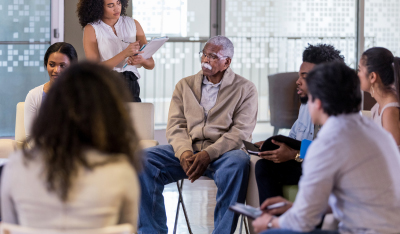
Community Engagement and Racial Disparities
At PublicInput, we often highlight equity as a focus of community engagement work. And while most engagement professionals we work with are comfortable talking about equity in principle, many stop short of directly addressing race and the persistent inequality of access and outcomes for people of color.
Having a voice in government should not be dependent on race, but for much of our nation’s history, one’s access and influence had everything to do with race. While progress has been made to provide greater access to healthcare, education, and government for black communities, data continues to show significant gaps in access and outcomes for African Americans.
The pandemic reminded us that these gaps persist
The fact that these gaps persist can be seen in data on the outcomes of COVID-19 relief efforts. The St. Louis Fed’s Institute for Economic Equity found that communities of color were less likely to receive unemployment insurance and faced barriers to receiving Economic Impact Payments and to accessing PPP loans.
Addressing racial disparities with engagement
While the causes of disparate outcomes vary widely, we believe a critical place to focus is access. It stands to reason that people with less information and less of a voice in a process will also benefit far less from its outcomes. Improving this access requires engagement practices and tools that lower barriers to participation and meet people where they are – ultimately enabling more residents to take part in the decision-making process.
By making engagement more accessible and meeting residents on their terms, communities can hear from more voices, deliver more inclusive outcomes, and work to address racial disparities.
A growing focus on equity of access at the federal level
There is an increasing recognition of the importance of increased access, such as the federal Justice40 initiative, which is reshaping the way federally-funded projects get prioritized – and increasing expectations for engaging and addressing the needs of disadvantaged communities.
This is not the work of a single administration or initiative, but a continuous effort
As we as a team reflect on Black History Month, we draw inspiration from pioneers that led the way in the civil rights movement – both for national policy issues, and at the local level. John Lewis said “Our struggle is not the struggle of a day, a week, a month, or a year, it is the struggle of a lifetime.”
Appreciation for those working to make a difference
To all of the people in our network who are working to give more people a voice, put in the effort to engage hard-to-reach groups, and pay attention to demography and race in their engagement work – we see you and appreciate you. Your work can make a difference, not only for African American communities, but for every person who has faced barriers to participation because of their race, background, or socioeconomic status.
We are heartened that community engagement can make a difference in achieving equity for African American communities, and we commit ourselves to driving toward its attainment in every community we serve – this month, and every month to come until it is attained.



